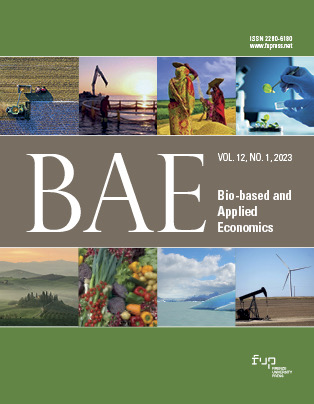Published 2023-05-15
Keywords
- dependence,
- ordered probit model,
- well-being,
- households decisions,
- crop diversity
How to Cite
Copyright (c) 2023 Ibrahim Prazeres, Maria Raquel Lucas, Ana Marta-Costa, Pedro Damião Henriques

This work is licensed under a Creative Commons Attribution 4.0 International License.
Funding data
-
Fundação para a Ciência e a Tecnologia
Grant numbers CEFAGE;CETRAD;MED;PRT/BD/152273/2021
Abstract
São Tomé and Príncipe (STP) is one of the world’s smallest organic cocoa exporting countries, whose product has a positive socio-cultural and economic impact. Small producers who ensure it, are associated into two cooperatives that experience several difficulties and dilemmas including climate changes and poverty. Diversification of livelihood strategies could lead to wellbeing, poverty and climate mitigation. The aim of this study was to analyse producers’ perception of sustainability related to the organic cocoa production in STP and to explain the influence of different factors on their livelihood strategies (LS). An ordered probit model for disaggregation of factor categories was used for the 2021 period. The results showed that gender, age, family size, members on-farm and off-farm work and professional training courses do not influence livelihood strategies. The important variables for them are education level, perception of social class, insurances and loans and access to services.






